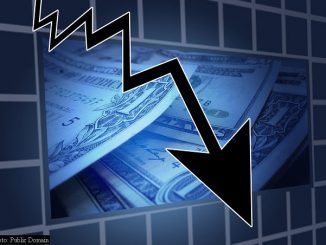Creativity has its place. That place is not the financial reports of states and municipalities.
At least it shouldn’t be, although as Wall Street Journal columnist Steve Malanga recently observed, the Securities and Exchange Commission is concerned that tax-exempt bond investors are being sold a collection of fairy tales.
Malanga, of course, is not the first to point out that finances at all levels of government are a mess and that some jurisdictions want to sweep their fiscal dirt under the nearest rug. My colleagues and I have written on this topic for years. But Malanga did a good job of pulling together three discrete, yet related, points: That some governments are hiding the true state of their finances; that the SEC is trying to clean up financial reporting so investors can better protect themselves; and that some bondholders may be in for an unpleasant surprise if they assume that they will be first in line to get paid if a government’s finances go on the rocks.
I think Malanga and the SEC are right to be concerned, though forecasts of municipal default are not popular with politicians or investors. This is why I believe would-be buyers ought to approach all public debt instruments with extreme caution.
The SEC has already has accused Harrisburg, Pa., and South Miami, Fla., of securities fraud. The SEC alleged that Harrisburg officials issued public statements intended to mislead investors and that South Miami created a complex bond deal that risked the securities’ tax-free status while failing to disclose the risk to investors. Both Harrisburg and South Miami agreed to settle. As is common in SEC cases, the settlements do not include admission or denial of wrongdoing.
It seems unlikely that Harrisburg and South Miami are outliers. The SEC accused Illinois earlier this year of misleading investors about the state’s pension fund, and filed similar allegations against New Jersey in the recent past. Anthony Figliola, a vice president with Empire Government Strategies, said that “Harrisburg is the tip of the iceberg.”
The whole idea behind lending money to anyone is that you expect to get it back eventually. That is the difference between a loan and a gift. But as some cities now aggressively push the argument that investors should be the ones to suffer financially when municipal finances run off the rails, the compact between borrower and lender is fundamentally broken. Politicians claim that taxpayers are not at fault and should not be asked to suffer, but conveniently ignore the fact that they and their predecessors are the ones who were entrusted with their jurisdictions’ financial health, not the investors who bought their bonds in good faith.
Despite these signs of trouble ahead, some yield-hungry investors are going to chase what seem like promising returns. All lenders start as savers, and all savers want to earn some return on the capital they saved. Given the rising tax rate environment, you’d probably like that interest to be tax-free. Thanks to the financial repression engineered by the Federal Reserve, which has taken safer alternatives off the table, some investors will gloss over the risks and lend to state and local governments that will eventually prove more loyal to local residents and voters than to their financial backers.
A bond is, after all, supposed to be a bond – a long-term covenant between a government entity that freely decides to borrow and a human being who lends his or her capital to that government. The government pledges its current and future taxpayers to honor that obligation for the many years it is designed to last. The system breaks down when the future becomes the present, and heavily burdened taxpayers renege because they don’t want to bear the costs or suffer the service cuts that good faith demands.
Creative government accounting is a sign that the system is breaking down due to a lack of that good faith. The SEC hopes to restore integrity to the system before it is too late. Let’s hope that threshold has not been crossed; but I believe that, in many cases, it already has.
- Bulenox: Get 45% to 91% OFF ... Use Discount Code: UNO
- Risk Our Money Not Yours | Get 50% to 90% OFF ... Use Discount Code: MMBVBKSM
Disclaimer: This page contains affiliate links. If you choose to make a purchase after clicking a link, we may receive a commission at no additional cost to you. Thank you for your support!




Leave a Reply